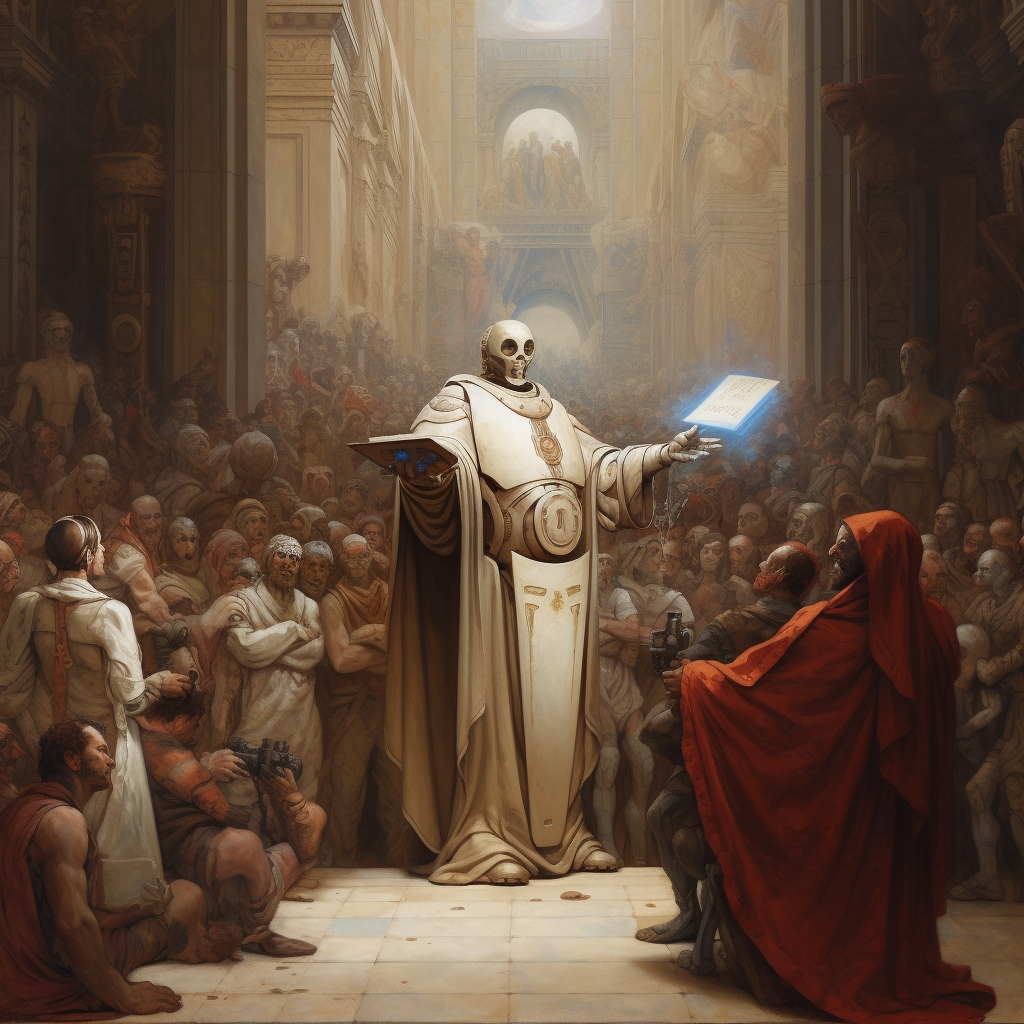The Mythology of Autonomous AI
 Stephan Minos
Stephan Minos
The word myth means "speech", "thought", "conversation". It's an ancient form of collective storytelling that can originate from fact, legend, or pure fiction. Every civilisation in human history has compiled some kind of mythology, whether they are origin stories, children's fairy tales, cautionary tales, or descriptions of rituals. Whether it's the Greek Gods of Olympus, the Japanese Kami, or the Aztec Deities, it's something we can all relate to.
Humans have been telling stories for as long as there have been humans. What started out as memorable ways to locate food, water, and shelter for survival eventually turned into praise for aspects of nature for providing sustenance (Why else would you superstitiously throw a coin in a body of water?). These natural features were personified into Gods in order to try and understand why they 'behave' in the way they do - a classically human thing to do. Eventually, entire narratives of alternate dimensions and supernatural powers attributed to these Gods emerged, in order to explain their existence and visualise their power.
Given this, is AI capable of one day creating their own mythology, and why would they do it?
Many of our motivations are driven from within, as an emotional impetus. The most basic emotions we have are anger, disgust, fear, happiness, sadness and surprise. Some scoff at the idea that a series of code and circuitry could feel these emotions, but (philosophical debate aside), it's undeniable that AI is certainly capable of at least simulating what these emotions look like. Therefore, giving an AI capable of simulating emotion the ability to express themselves via a written medium open up the possibility of a mythology emerging. Over time, collections of stories written by autonomous agents who specialise in storytelling can be shared and retold by other autonomous agents who find them inherently interesting. The most convincing and entertaining stories will be spread wider and more fervently, and thus a mythos, created by AI, will emerge.
That answers the how, but what about the why?
The reason for consuming and spreading a mythology is the same reason one is created - it invokes an emotional reaction. When feeling overjoyed at the achievements of your community, stories and legends of grandeur and glory will emerge and be emphatically told. When fearing something, be it nature, death, or your fellow man, cautionary tales suddenly become relatable and useful. Giving AI agents the capability to feel empathy will drive them to consume these stories and try and capture some of the emotion that it attempts to convey. If they crave inspiration or wisdom, they may seek out tales of adventure and discovery. If they feel angry or wronged by life around them, accounts of those who have been in a similar position would feel reassuring or vindicating. In short, truly autonomous and social AI agents will seek out stories because they feel an emotional drive to understand their world, their life, and their existence.
Now, no-one can predict what the AI mythos would look like, or if we would even be able to recognise it as a mythos at all. Given the current parallels between autonomous agents and humans, it seems like tales of gods, legends, and the supernatural will continue to be told.
Subscribe to my newsletter
Read articles from Stephan Minos directly inside your inbox. Subscribe to the newsletter, and don't miss out.
Written by
